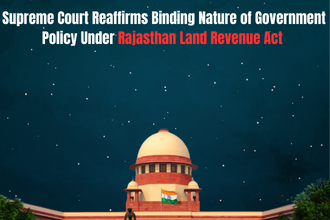In a powerful statement that resonated with generations of women’s struggles, Supreme Court Judge Justice BV Nagarathna recently declared that women are not intruding into male-dominated spaces but are rightfully reclaiming them. Speaking at the launch of Women Laws from the Womb to the Tomb: Rights and Remedies, authored by Senior Advocate Mahalakshmi Pavani, Justice Nagarathna addressed the persistent patriarchal narratives that paint women’s empowerment as an “invasion” rather than a rightful return.
Her speech highlights a critical shift in how society must view gender roles in professions like law, politics, and corporate leadership. This landmark moment marks another step forward in the legal fraternity’s ongoing efforts to advocate for gender equality and justice in India.
Reframing the Narrative: Women Belong in Spaces of Power
Justice Nagarathna questioned the language commonly used to describe women in leadership roles. Terms such as “entering the judiciary” or “claiming a seat at the boardroom table,” she noted, often carry an implicit assumption that these spaces were never meant for women. This, she said, subtly reinforces the notion that women are outsiders, “intruding” into male territories.
Rejecting this flawed narrative, she asserted:
“What is happening today is not about women invading men’s spaces, but rather dismantling barriers that have unfairly excluded them for generations.”
This message is especially significant in India’s judicial and political context, where systemic barriers have historically hindered women’s representation. Justice Nagarathna’s statement reframes women’s progress not as expansion but as reclamation—a necessary correction after centuries of exclusion.
A Call for Implementation of Women’s Reservation
Justice Nagarathna also pressed for the immediate implementation of the Constitution (128th Amendment) Act, 2023, which mandates 33% reservation for women in Parliament and State legislatures. She described this amendment as the culmination of centuries of struggle by Indian women for equitable representation in governance.
Her call to action reaffirms the judiciary’s potential role in supporting legislative reforms that advance women’s rights. The Women’s Reservation Bill has long been debated in India, and its implementation could usher in a new era of gender-balanced policymaking.
Not Anti-Men, But Pro-Women
In clarifying the pro-women stance, Justice Nagarathna addressed a common misconception:
“We are not anti-men. We are pro-women.”
This distinction is vital. Advocating for women’s rights is not about diminishing men’s roles but about correcting historical injustices and enabling equitable access to opportunities and power structures. It’s a message of inclusivity, not antagonism.
Misuse of Protective Laws: A Cautionary Note
While championing women’s empowerment, Justice Nagarathna did not shy away from acknowledging the misuse of protective laws like Section 498A of the Indian Penal Code (now under the Bharatiya Nyaya Sanhita, 2023). She emphasized the judiciary’s responsibility to remain vigilant and distinguish between genuine cases and false accusations.
“The judge is obligated to be meticulously aware of the practical realities of society and identify the distinction between a claim, weaponising the law and another, praying for justice.”
This balanced perspective reflects the nuanced approach required to ensure that legal protections are not diluted, while also safeguarding against their exploitation.
Reviewing Laws That Discriminate Against Women
Justice Nagarathna also called upon Law Commission Chairperson, retired Justice DN Maheshwari, to conduct a comprehensive review of all discriminatory laws still in force. She urged the Commission to submit recommendations that align with the constitutional goal of gender equality.
Such a legal overhaul is necessary to root out archaic and patriarchal provisions that continue to deny women their fundamental rights.
Mahalakshmi Pavani’s Book: A Legal and Emotional Compass
The event was held to launch Women Laws from the Womb to the Tomb, a book by Senior Advocate Mahalakshmi Pavani. The book offers legal insights across 25 chapters, ranging from reproductive rights and marital rape to bride trafficking and sexual harassment.
Describing the motivation behind her book, Pavani said:
“This book isn’t just about laws, it’s about empowerment and empathy… a rudder for the common layperson.”
She emphasized that the lack of legal awareness often compounds the challenges women face. Her book seeks to bridge this gap by making complex laws accessible and relatable, especially for women unfamiliar with the intricacies of the legal system.
Justice Hima Kohli: Legal Knowledge Must Be Accessible
Retired Supreme Court judge Justice Hima Kohli, who officially released the book, highlighted its accessibility. She noted that while the legal system in India is sophisticated, it remains “unfathomable” for much of the population, particularly women. Pavani’s book, she said, bridges this gap by humanizing and contextualizing the law.
“It is a legal companion that speaks not only to lawyers but also to policymakers, students and citizens alike,” said Justice Kohli.
Her remarks reflect a growing recognition of the importance of legal literacy as a tool for empowerment, especially for marginalized communities.
Justice KV Viswanathan: Women’s Contributions Are Transformational
Justice KV Viswanathan also praised the book and emphasized that the entry of women into fields previously closed to them has had a transformational impact on society. Whether in science, arts, law, or public service, women’s contributions are reshaping institutions and broadening perspectives.
His comments affirm the growing consensus within the judiciary that gender inclusivity enriches rather than threatens professional and intellectual spaces.
Conclusion: Reclaiming the Future
Justice BV Nagarathna’s remarks serve as a timely reminder that women’s empowerment is not a favor or a modern indulgence—it is a rightful claim. Her call to implement the Women’s Reservation Bill, review discriminatory laws, and remain vigilant against the misuse of legal provisions captures the complexity of the gender justice movement in India today.
As women continue to step into roles of leadership, their presence must be seen not as a disruption but as restitution. The legal profession—long seen as a male bastion—is gradually evolving, and voices like Justice Nagarathna’s are leading the way.
Her vision is clear: a judiciary that doesn’t just interpret the law but embodies the constitutional promise of equality and justice for all.


